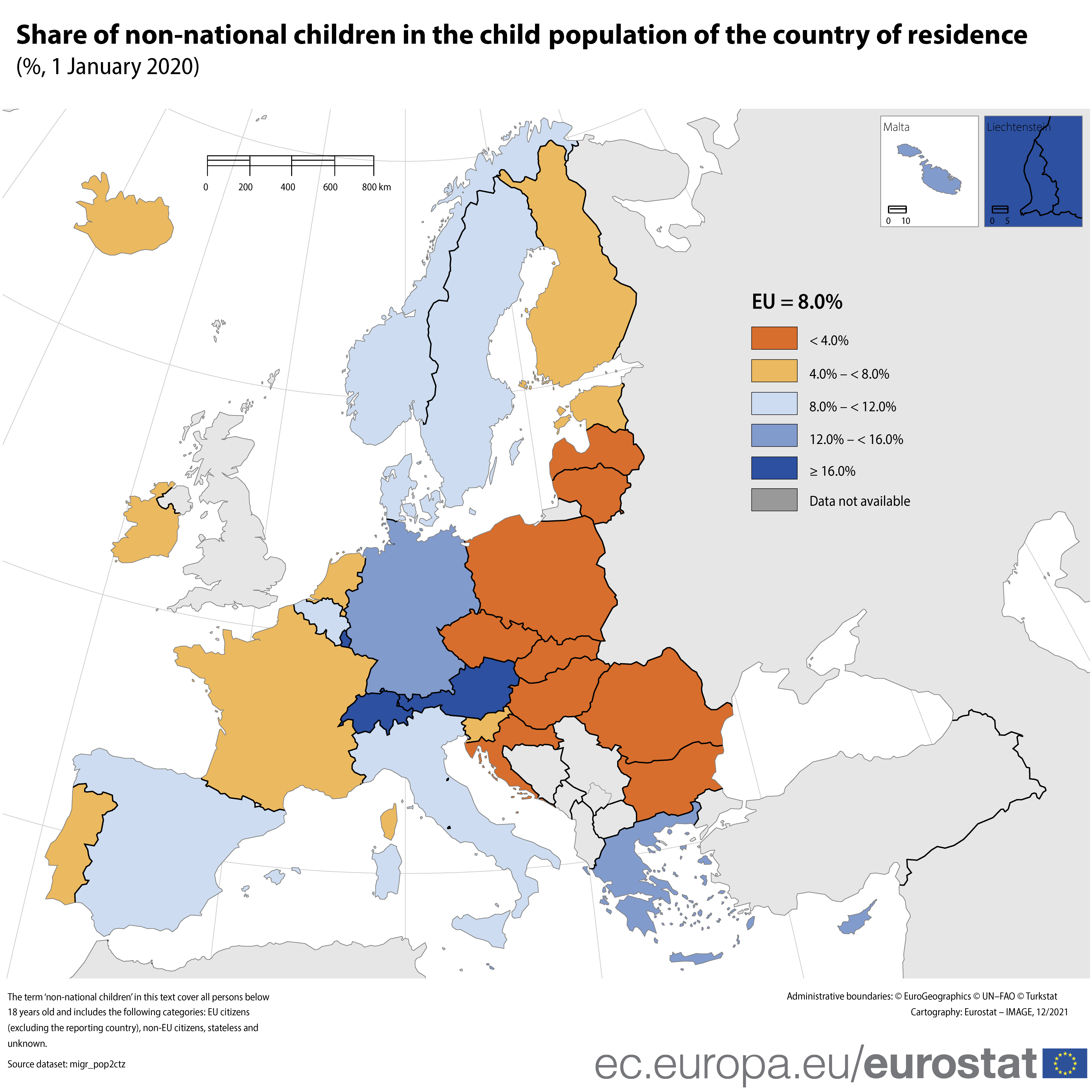17/12/2021
On 1 January 2020, around 6.5 million persons aged less than 18 years were non-national, meaning they did not have the citizenship of the EU Member States they lived in, representing 8% of the total number of children in the EU.
In absolute terms, the EU Member States hosting the highest number of non-national children were Germany (1.7 million, or 26% of non-national children in the EU), France (1.1 million, or 17%), Italy (1.0 million, or 16%) and Spain (0.9 million, or 14%). Almost 3 out of 4 children without the citizenship of their EU country of residence were residing in one of those four Member States in 2020.
In relative terms, the EU Member State hosting the highest share of non-national children was Luxembourg (48% of the total child population in Luxembourg), followed by Austria (19%), Malta (15%), Greece (13%), Germany and Cyprus (both 12%).
At the other end of the scale, the Member States recording the lowest shares were mainly located in the eastern part of the EU as illustrated by the shares observed in Romania, Slovakia, Poland, Lithuania and Bulgaria which are all less than 1%. 
Source dataset: migr_pop2ctz
This news item is being published on the occasion of International Migrants Day, which is celebrated on 18th December to raise awareness about the challenges and difficulties of international migration.
For more information:
To contact us, please visit our User Support page.
For press queries, please contact our Media Support.
Thank you for your feedback.
We are sorry to hear that. You can report the issue here.
Thank you for the information. We will investigate the issue.
Was this page useful?
News
Data
Publications
About us
Opportunities